SAFE Communities is a multi-year GBV prevention programme funded by the UK government in Zimbabwe. The SAFE team designed and tested the Toose (meaning Together in Shona) model between in 2019 and in Zimbabwe to reduce the perpetration of intimate partner violence (IPV), focusing on addressing economic insecurity and discriminatory social norms as key drivers. Toose is a theory-driven combined economic and social empowerment approach which works at individual, relationship and community levels, and is publicly framed as a family wellbeing programme.
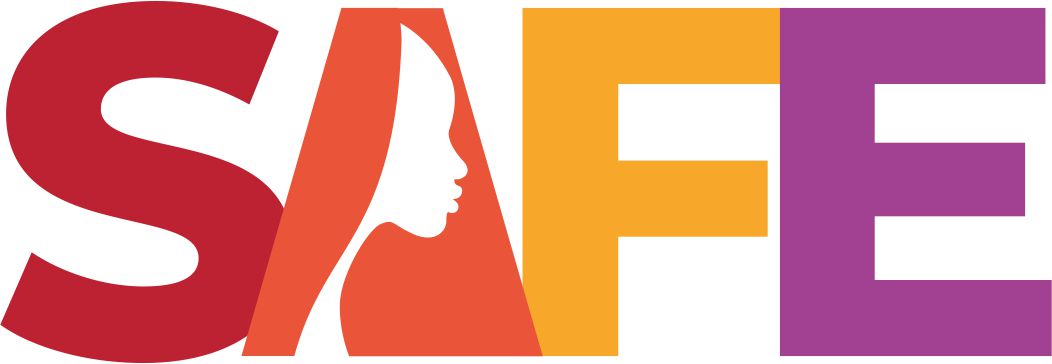
Toose was piloted in three districts in Zimbabwe, two rural districts (Chikomba and Mwenezi) and one urban district (Chiredzi) over 3 cohorts or rounds of implementation. Local implementing partners were Plan International Zimbabwe (Chiredzi), Caritas Harare (Chikomba) and Mwenezi Development Training Centre (MDTC), alongside local women’s rights organisation (WRO) Musasa who developed and provided essential and complimentary response services and approaches in all the three districts. In Mwenezi and Chikomba, implementation included a social empowerment curriculum plus tailored livelihoods support through community savings and loans associations. In Chiredzi, Plan implemented the same approach, but with couples who are already engaged in an existing social protection programme, through WFP, which provides humanitarian cash transfers.. By alleviating the economic stress faced by households, equipping intimate partners with the skills to communicate effectively and cooperate, and challenging gendered norms, Toose is showing promising effects in the lives of both women and men, and their wider families including reported improvements in household communication and conflict resolution between couples, reduction in financial dependency among women and improvement in household economic dynamics including increased income, saving, food security, joint planning, coping strategies and household economic discussions.
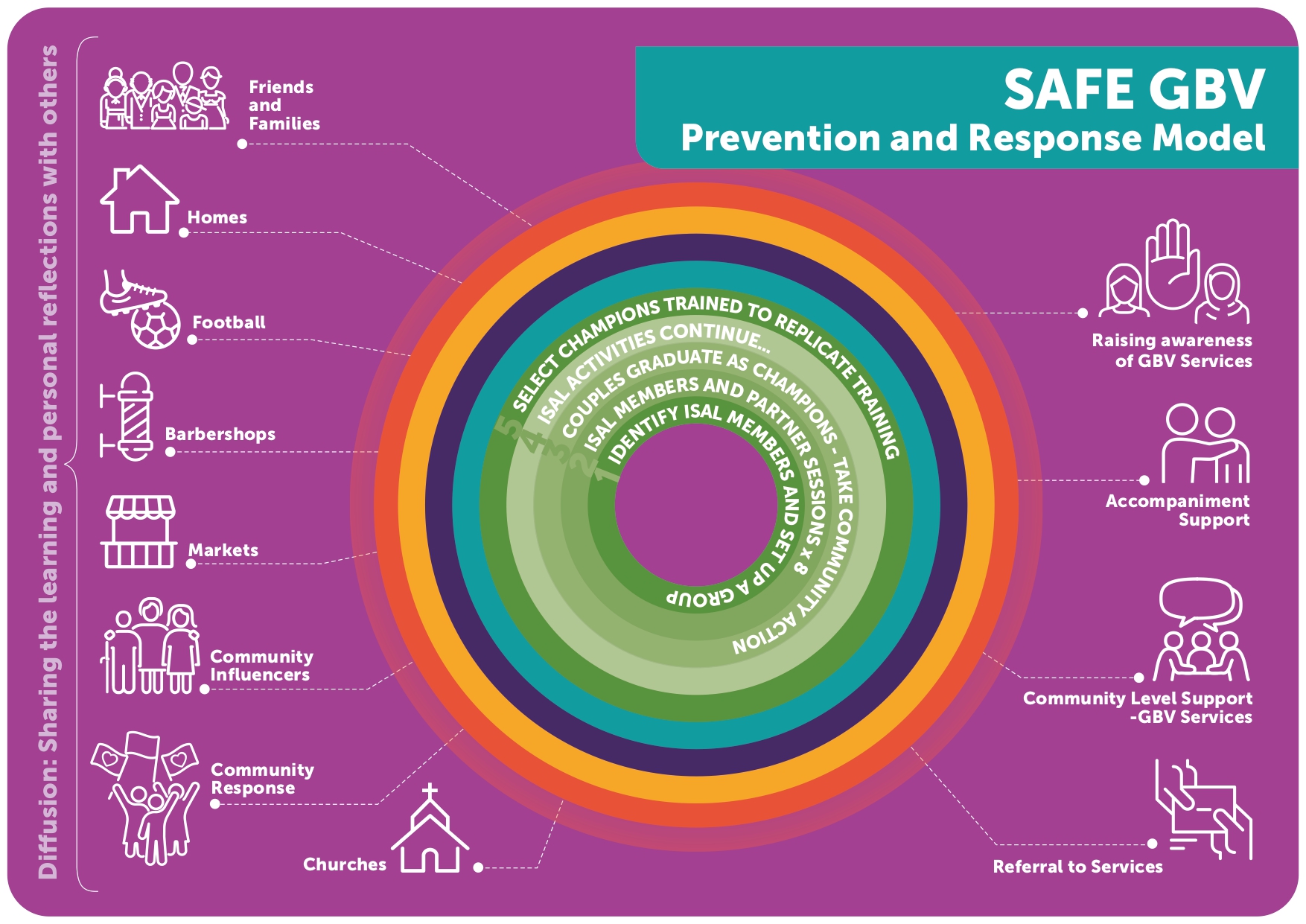
Prevention model
Central to Toose approach and the overall SAFE ToC is the synergetic effect of economic empowerment and social empowerment / gender transformative activities where new income streams are used to create an impetus for families to engage in joint visioning and planning. There are 4 key elements to the Toose approach these are social empowerment, economic empowerment, GBV response and integrated use of monitoring, evaluation and research data to guide learning and adaptation. Surrounding these core components are also community level activities designed to diffuse change out into the wider society, and a commitment to leave no one behind.
Combined the different elements of the prevention model are expected to result in:
- Improved economic security through Internal Savings and loan (ISALs)
- Improved household social empowerment and well-being through social empowerment / gender transformative sessions for couples (adapted from GALS)
- Creation of an enabling environment for gender equality and the reduction of violence through household and community level engagement
- Increased uptake of quality GBV services.
SAFE Communities also has a strong focus on learning and adaptation and is working on a number of learning products and tools related to the programme and its approach.
SAFE is led by Ecorys with Social Development Direct as the lead technical partner. It is delivered by development NGOs – Caritas Zimbabwe in Chikomba, and Self-Help Development Foundation and Mwenezi Development Training Centre in Mwenezi. In Chiredzi, it is led by Plan International Zimbabwe and layered on to cash transfer programmes run by WFP. The response component is led by Musasa across the three districts.
Project highlights
Learning lessons from Toose: a global webinar on the SAFE Programme’s IPV model, 10 December 2024
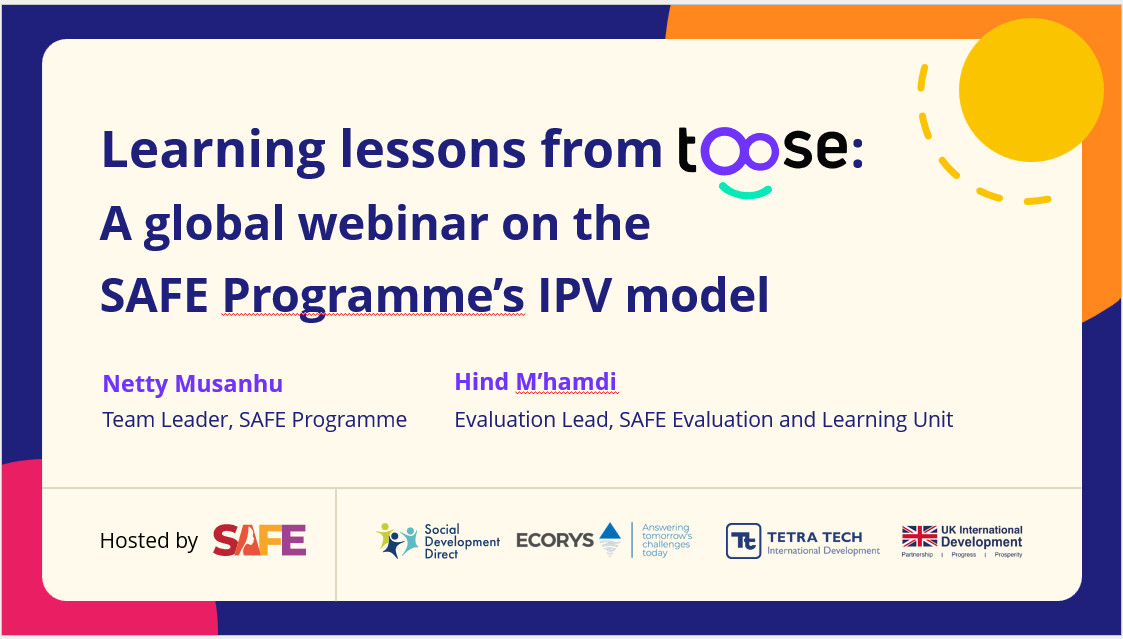
Check out the presentation from Netty Musanhu and Hind M’hamdi, which gives an overview of the programme and Toose model and what we have leant so far
Stopping Abuse and Female Exploitation (SAFE) Programme, Zimbabwe - Introductory Slides
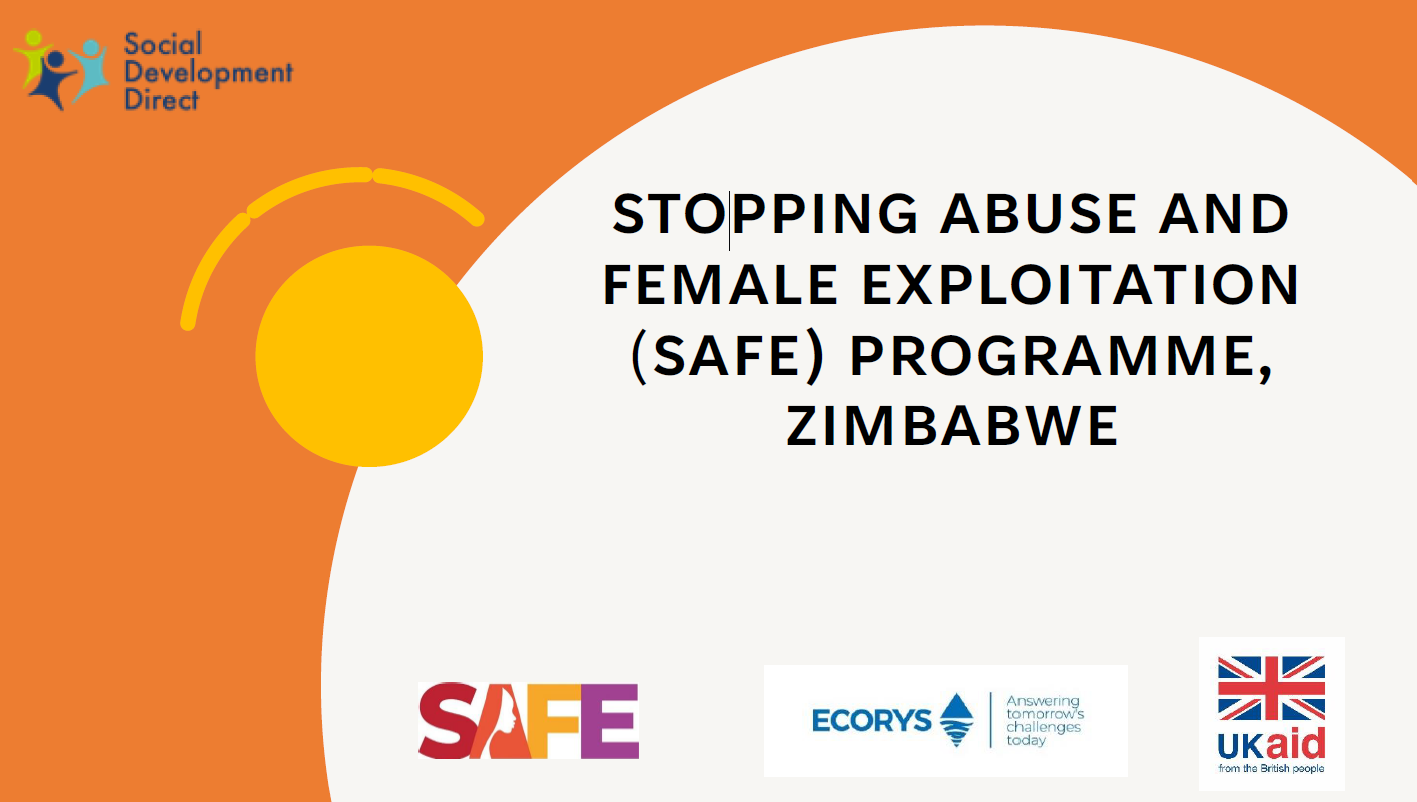
Check out this resource, which provides an overview of the Stopping Abuse and Female Exploitation Programme in Zimbabwe.
Story of Change: The impact of Toose programme in the Mwenezi District
From SAFE and Toose, this story of change highlights Siziwe Zigomo's journey from relying on others due to her disability to starting her own poultry project in her community.
Meet the Team
Netty Musanhu, Team Leader
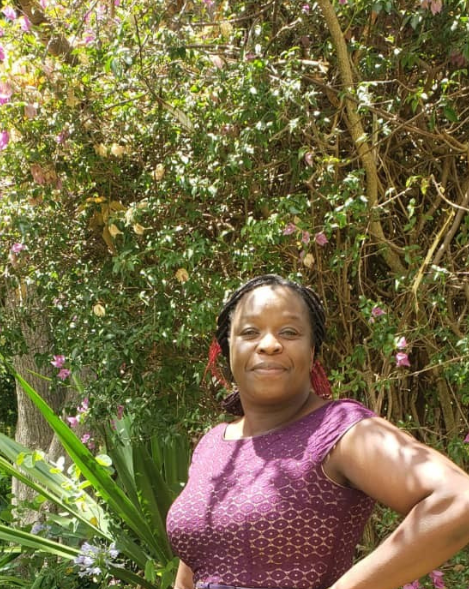
Netty is the Team Leader for the FCDO funded Stopping Abuse and Female Exploitation against Women and Girls. (SAFE) She has overall responsibility of program, technical and team management in Zimbabwe. Netty has over 20 years experience in designing, implementing and managing gender, GBV, HIV/AIDS and conflict and peace building interventions in international NGOs, local NGOs, WROs and Constitutional Commissions in Zimbabwe.
Gemma Ferguson, Principal Consultant
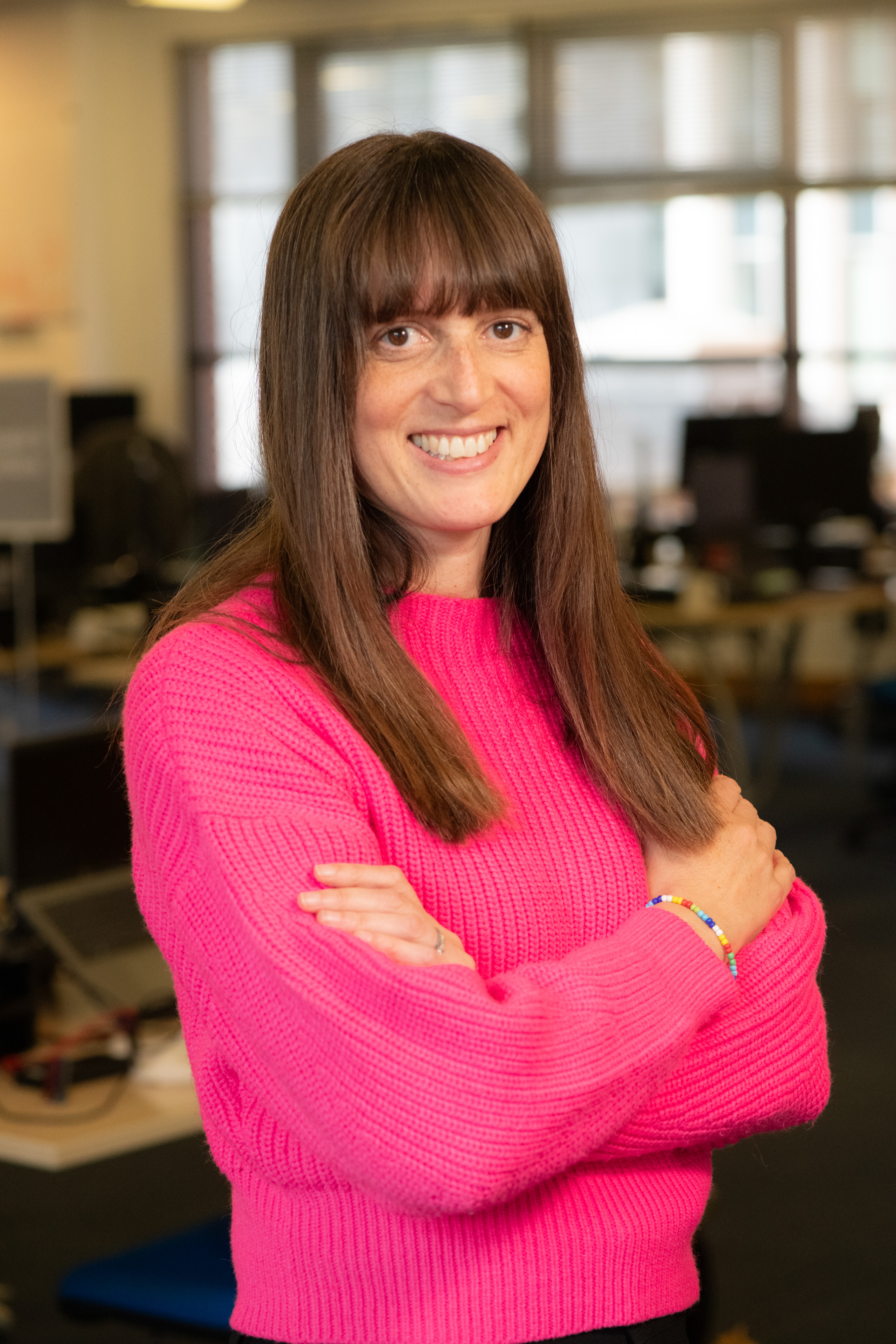
Gemma Ferguson is a Principal Consultant in the GBV team, with two decades of experience working at the intersection of media and social development, focusing on gender, social behaviour change, and social norms programming. She has worked across Asia, Africa, and the Middle East, bringing expertise in curriculum development, programme design and delivery, training, research, and evaluation. Gemma's thematic focus includes GBV, women, peace and security, governance and democracy, harmful practices, women’s leadership, and economic empowerment.
Bekezela Mapanda, GBV Technical Lead
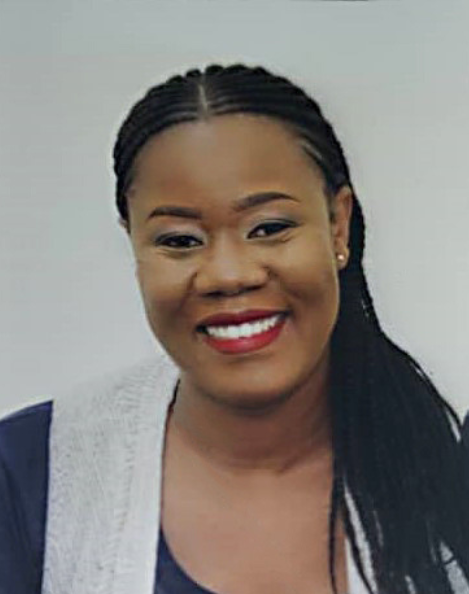
Bekezela is the GBV Technical Lead for SAFE (Communities). She is primarily responsible for the design and implementation of prevention and response interventions including supporting implementing partners in implementing the Toose package in communities. Bekezela is a gender specialist who possesses 15 years of experience in the development sector, focusing on initiatives aimed at advancing gender equality, empowering women, advocating for women's rights, and addressing gender-based violence (GBV).
Tsitsi Phiri, MEL Lead
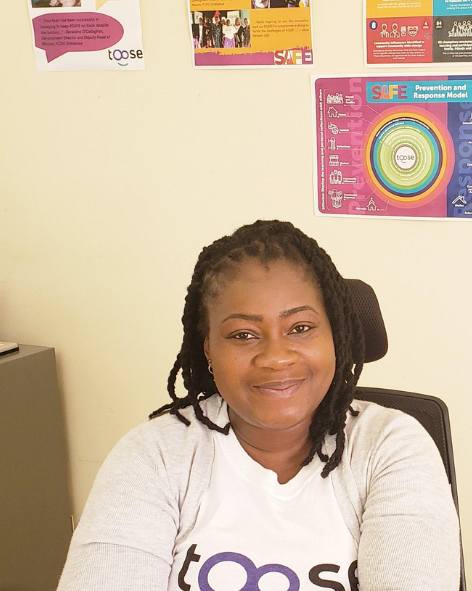
Tsitsi Phiri is Monitoring, Evaluation, Research and Learning (MERL) Lead for the SAFE programme. In this role she is the technical lead for the Monitoring, Evaluation and Learning Output within the SAFE (Communities) programme and is primarily responsible for the design and implementation of a robust monitoring and evaluation framework for the programme which entails ensuring that the SAFE Communities Theory of Change (ToC), logical framework (LF) and associated monitoring tools and processes are coherent and cohesive and can be used to generate reliable data concerning progress in implementation.
Claire Hughes, Results and Evidence Advisor
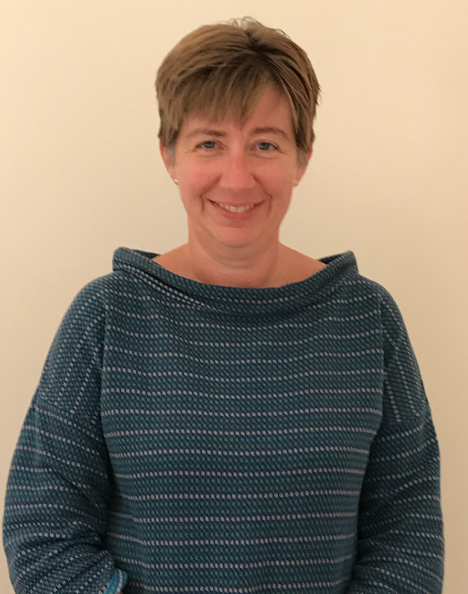
Claire Hughes is SAFE’s Results and Evidence Adviser. She’s provided technical support to the design and implementation of SAFE’s monitoring, evaluation and learning system, ensuring it generates evidence to inform programme adaptation and to expand the evidence base on what works to prevent GBV. Claire has played a key role in facilitating SAFE's learning and adaptation processes and has interfaced with the programme's independent evaluation team, ensuring the evaluation aligned well with the programme's technical design and own internal monitoring.
Lusungu Kalanga, Principal Consultant
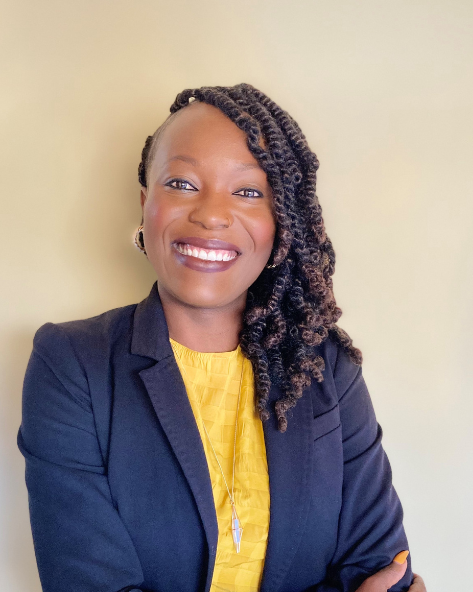
Lusungu is a Malawian feminist activist with over 12 years’ experience in Women and girls’ rights work focusing on prevention of violence against women and girls (VAWG) in Southern Africa. She has technical expertise in designing, adapting and implementing gender transformative approaches for VAWG prevention and response and capacity strengthening for organisations/practitioners of VAWG prevention programmes. Lusungu has experience and expertise in feminist movement building and is part of the advisory cycles of African feminist movement building initiatives including Eyala and Feministing While African.
Tina Musuya, Head of Gender-Based Violence Portfolio
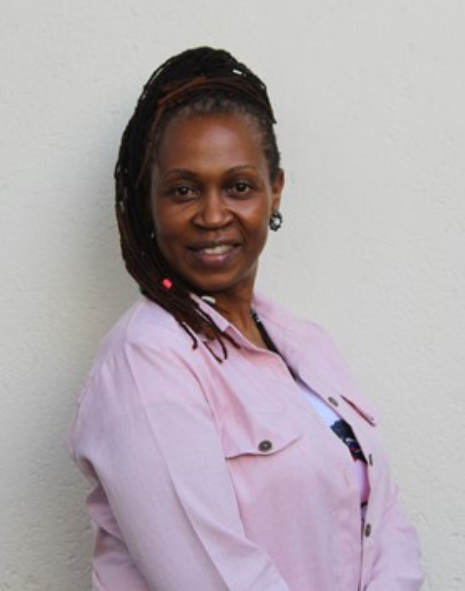
Tina has over 16 years of experience working with communities, police, civil society, local government, and policy makers to prevent VAW mainly in the East African region. She brings deep knowledge and understanding of effective programming to prevent violence against women in the development settings, including ensuring that the programs are gender transformative and based on feminist principles. She led colleagues at CEDOVIP to address challenges of mediation in domestic violence cases through responsibility sessions in a way that is significantly different and safer for all involved than traditional mediation has been, led the process for development of the GBV Risk Mitigation and Prevention Strategy for the Green Climate Project Uganda. She also helped draft and successfully campaigned for passage of the Domestic Violence Act in Uganda.